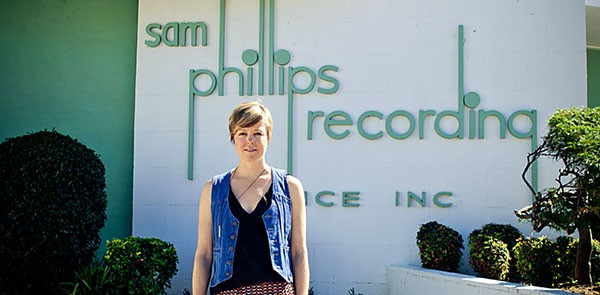This week, people will gather in Memphis to talk about music. Sure, that’s hardly news. But this week, Memphis hosts an international conference featuring leading music- and business-savvy minds from as far away as the U.K. and Estonia — and even Tennessee’s other Music City, Nashville — for a symposium on creating strategies to promote music as an engine of growth.
The Music Cities Convention has brought music industry professionals to several cities to discuss how music impacts their identities and economies — and how to help it flourish. This time around, it’s Memphis.
“It’s funny, phones from America can’t call outside the U.S.,” Music Cities Convention (MCC) organizer Shain Shapiro commented when he called me to talk about the conference’s sixth iteration. Shapiro is the managing director of Sound Diplomacy, a London-based development agency that helps clients tweak their music strategy and policy, and the conference organizer for Music Cities.
“I’m a nerd,” Shapiro says, so he found himself interested in things like global connections, building codes, noise curfews, and how music makers and cities could strengthen a symbiotic relationship to bring more profit to both parties. “It wasn’t planned,” Shapiro says of the path that led him to be the creator of an altogether different music conference.
MCC gathers organizers, performers, legal authorities, and cultural ambassadors to discuss the roles music plays in the life of a city. Because promoters or songwriters don’t often ponder noise curfews or the economics of entertainment, there’s a need for parties with different perspectives to view the big picture. And that’s where MCC comes in.
Talks will include “Smart Music Cities: Data Driven to Support Artists,” “Every City Needs a Music Strategy,” and “Time for the Cities: Let Music ‘Take You There’,” a panel asking “How can property developers and the creative industries work more cohesively?”
Planners who have re-made their cities as music destinations, from Tallinn, Estonia, to Chengdu, China, will offer their success stories. Memphis’ own talents will also contribute, from singer/promoter Tonya Dyson, who helped develop the Memphis Slim Collaboratory, to Lawrence Matthews (aka Don Lifted), who pioneered genre-breaking performances in non-traditional venues. Deron Hall of the Memphis Arts Engine and Darren Isom of the Memphis Music Initiative will also contribute.
Other speakers include far-flung performers, academics, activists, and attorneys who know how to capitalize on the musical life of a city: Igor Lozada, the head of culture for the city of Guadalajara, Mexico; Australia’s Emily Barker, whose most recent album was recorded at Sam Phillips Recording Service; Justine Avila, executive director of Nashville’s Music City Music Council; and Shawn King, Colorado’s “Music Ambassador” (and drummer and trumpeter for the indie-folk band Devotchka).
The global perspective of the conference has contributed to its success. Its 2015 debut sold out in Brighton, England. Then in October of that same year, Music Cities made landfall in Washington, D.C. It returned to Brighton in 2016, and the most recent convention was held in Berlin, earlier this year. This week’s Memphis Music Cities Convention will mark the conference’s second hosting in the U.S.
When asked what drew MCC to Memphis, Shapiro says that it was important to him to bring attention to cities that aren’t necessarily giant culture centers like New York or L.A., yet are positioned to benefit from the convention’s ideas.
Another factor, he notes, was the persistence of Music Export Memphis (MEM), a local nonprofit responsible for the successful Memphis Picnic concerts held at South By Southwest and Americana Fest.
MEM founder Elizabeth Cawein hopes the international attention will bring more Memphians into the conversation. She says diverse perspectives can help a city juggle the many strategies for bringing music front and center. “It’s difficult to see [just] one next step,” Cawein says. “There are so many things already in motion. So many strategies that work somewhere else might, with a little experimentation, work here.”
 Stacie Huckeba
Stacie Huckeba